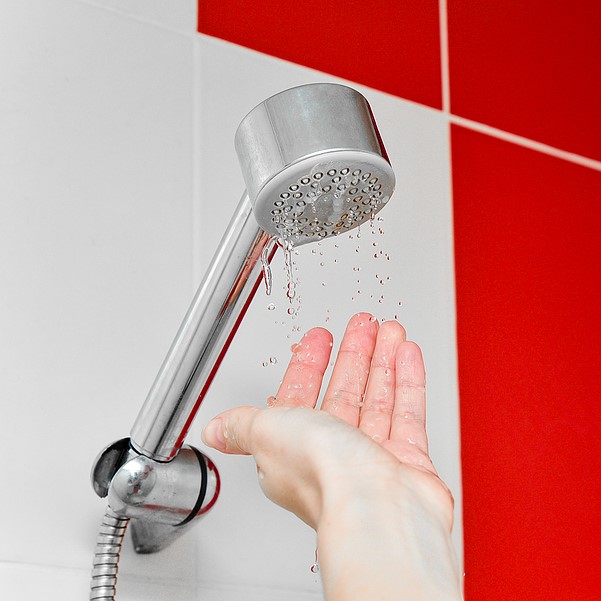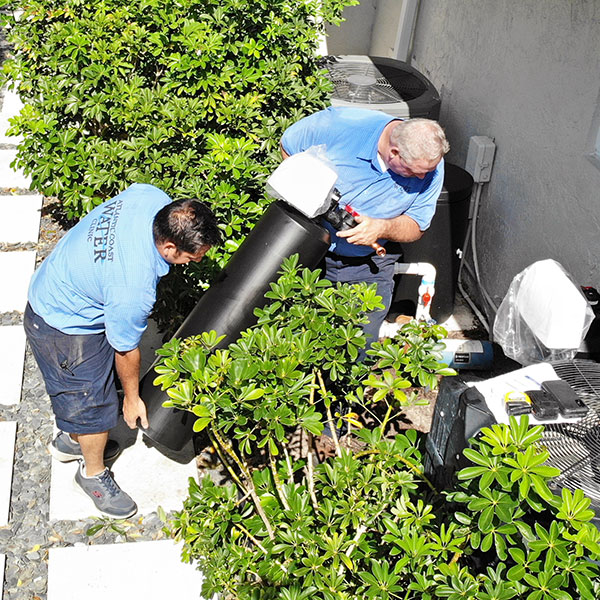Understanding Flow Rate & Water Pressure
 No doubt, you have experienced once or twice when taking a shower lack of water flow and pressure. This is when the water that comes out of the showerhead is not a full stream, but more like a trickle.
No doubt, you have experienced once or twice when taking a shower lack of water flow and pressure. This is when the water that comes out of the showerhead is not a full stream, but more like a trickle.
When this occurs, more than likely other things affecting water flow and pressure are taking place in your home. This can include the flushing of one or more toilets, another shower is being used, and/or the washer is in use. All of this occurring concurrently will result in a lack of water flow.
The occurrence of lack of water flow either coming from the showerhead or sink faucet can be the result of water pressure issues and water flow rate. Understanding the terms “water pressure” and “water flow rate” helps in determining why there is a lack of water flow when all of those water-related appliances are being used.
What Is Water Flow Rate?
Simply speaking, water flow rate involves the amount of water actually being used in one particular period of time. Commonly, water flow rates are measured in gallons per minute.
If you have a faucet that is lacking in water flow when activated, there is a way to determine the flow rate. Place a measuring cup under the faucet and open the tap fully for about 10 seconds. Time the rate of flow as the water streams from the faucet. Once 10 seconds have elapsed, close the tap. Multiply the measured amount of water by six and convert the number from cups to gallons. If you filled eight cups of water in 10 seconds, the mathematical formula to convert the number of cups to gallons is:
8 cups x 6 = 48 cups. 1 cup = .0625 gallons. So the next math formula is 48 x .0625 = 3 gallons. So your water flow rate is 3 gallons per minute (3GPM).
What Is Water Pressure?
Water pressure is simply how much force is pushing the water through the faucet. Pressure tanks or tall water towers use their height combined with the weight of the water to generate pressure through the delivery system. Commonly, the amount of water pressure in your home ranges from 45 to 80 pounds per square inch (psi). This can change depending on the size of the house, the pounds per square inch required to reach a fixture or appliance.
If you receive water from a well, then the well pump actually generates the water pressure. The pump works in combination with a pressure tank or a second booster pump to generate a satisfactory water pressure throughout your home.
Why Is There A Low Flow Rate?
There are a number of elements that can cause a low flow rate. They include:
- A problem with a water pressure regulator or a partly closed shutoff valve or meter.
- Extreme and concurrent water usage.
- Blocked pipes or fixture
- Friction depending on the texture and diameter of the pipes.
Preventing Low Flow Rates
Using the proper water treatment equipment can help to prevent low water flow rates. A water softener can decrease the amount of harmful hardness components that results in considerable mineral accumulation in pipes and water fixtures.
If the problem involves iron in the water, a point of entry water filtration system, can quickly remove the iron and reduce the possibility of iron deposit buildup.
The buildup restricts the amount of water that can travel through the system. The smaller the opening due to the buildup, the faster it will clog.
A remedy for this is to soak your showerhead in vinegar to release the buildup and allow the water flow to work freely through the system.
Another issue that can cause flow rate and pressure problems is the actual pipes. The larger the pipe is, the better the water flows. However, if the water pressure is low and does not have the strength to push through the friction of the pipe, then water flow rate could be affected. To repair this problem the pipes need to be adjusted.
Because it’s so common, you can bet that over time there will be a problem with your water flow rate and/or pressure.
The best way to prevent any problems with the proper flow and pressure of your water is to seek the help of a professional water filtration company that will regularly come to your home to repair the problem.
 Atlantic Coast Water Clinic Can Help!
Atlantic Coast Water Clinic Can Help!
One such company you can trust to perform such maintenance is Atlantic Coast Water Clinic, located in Stuart, Florida. The company offers water softening and water filtration solutions to assure that the water system in your home offers the proper water flow rate and pressure. The staff of Atlantic Coast Water Clinic has the knowledge and skills to alleviate hard water issues and other problems that can affect the proper water flow rate and pressure of your water system.
For more information call the company at (772) 283-4767 or visit the website to learn about all the services Atlantic Coast Water Clinic provides.


 772-283-4767
772-283-4767